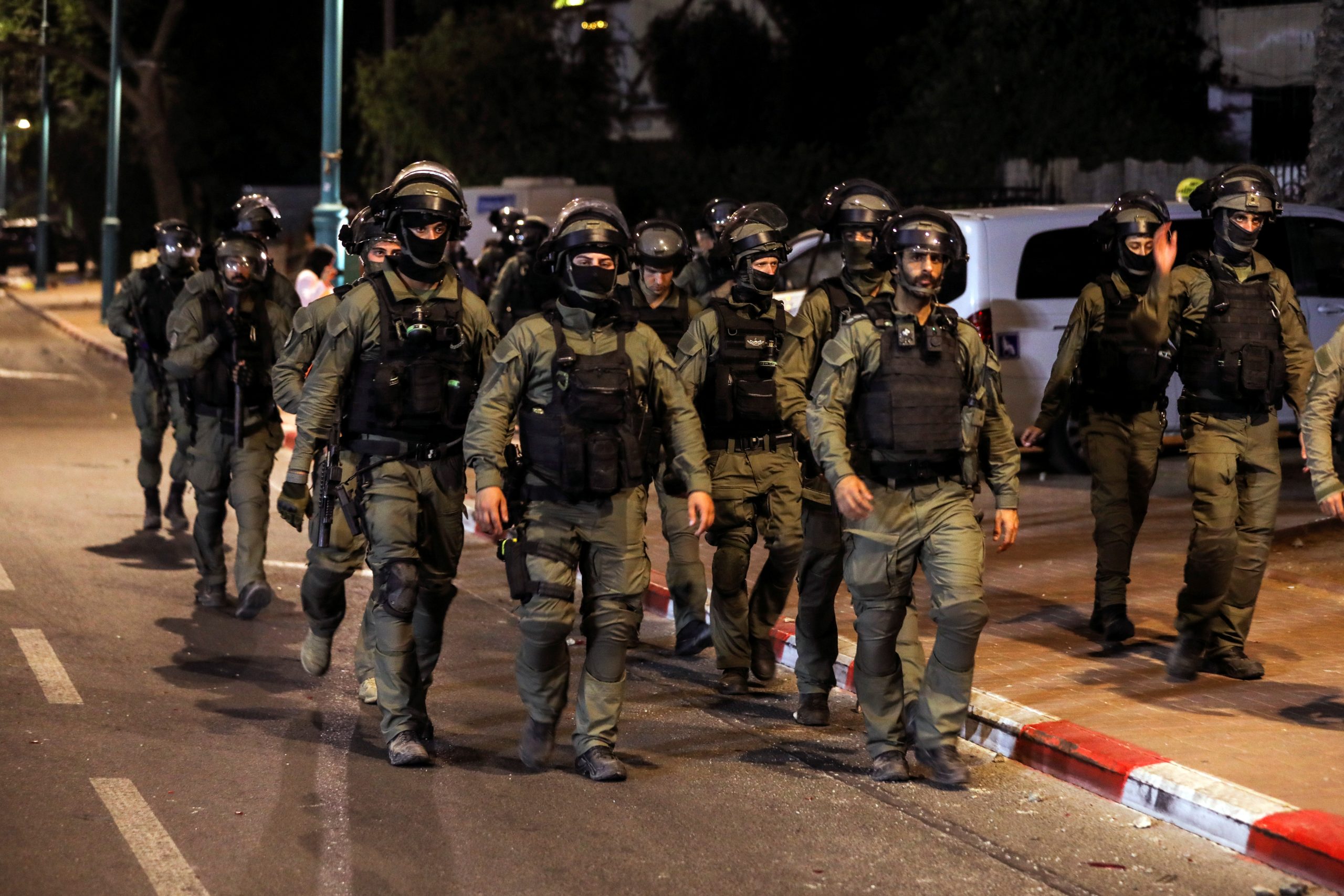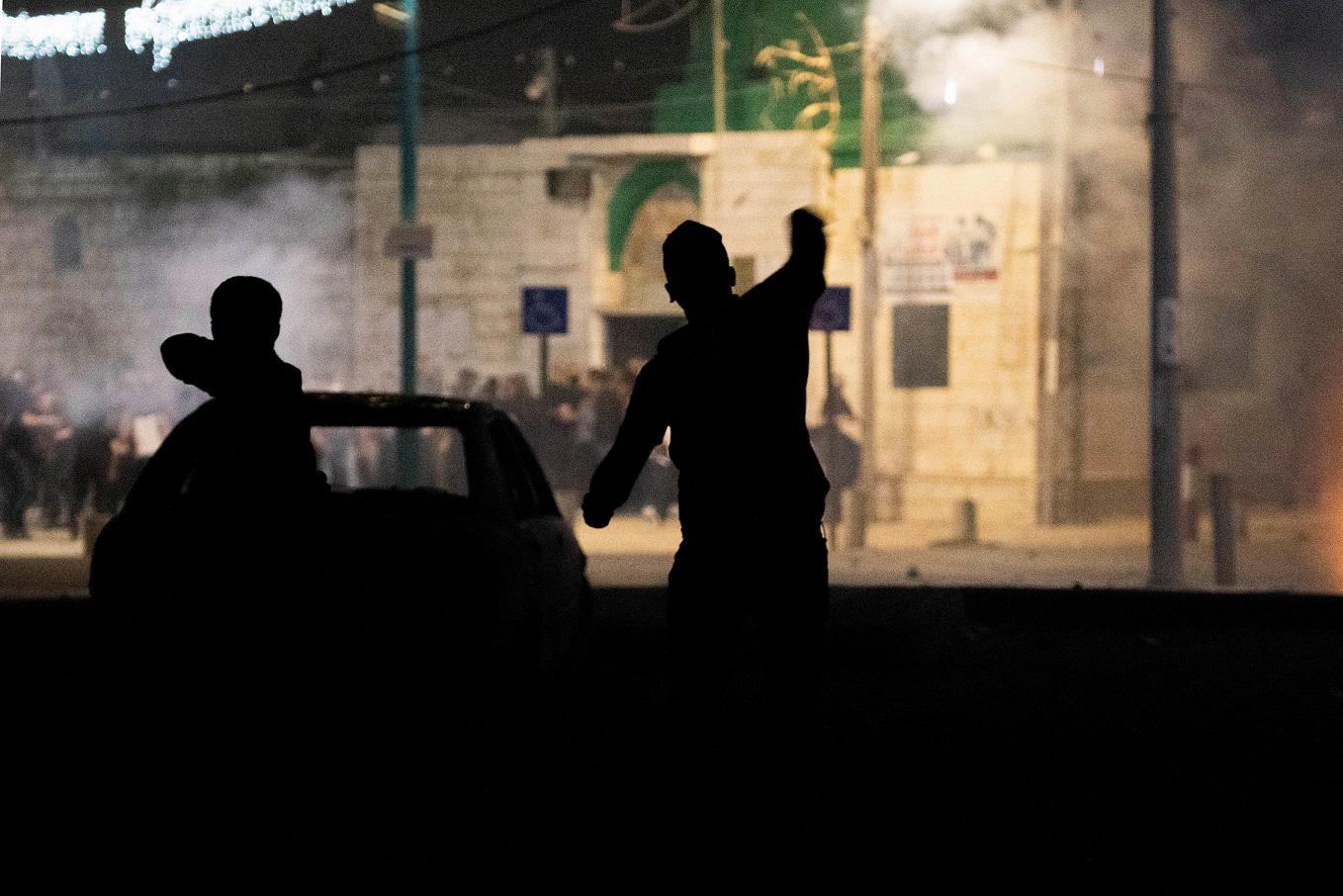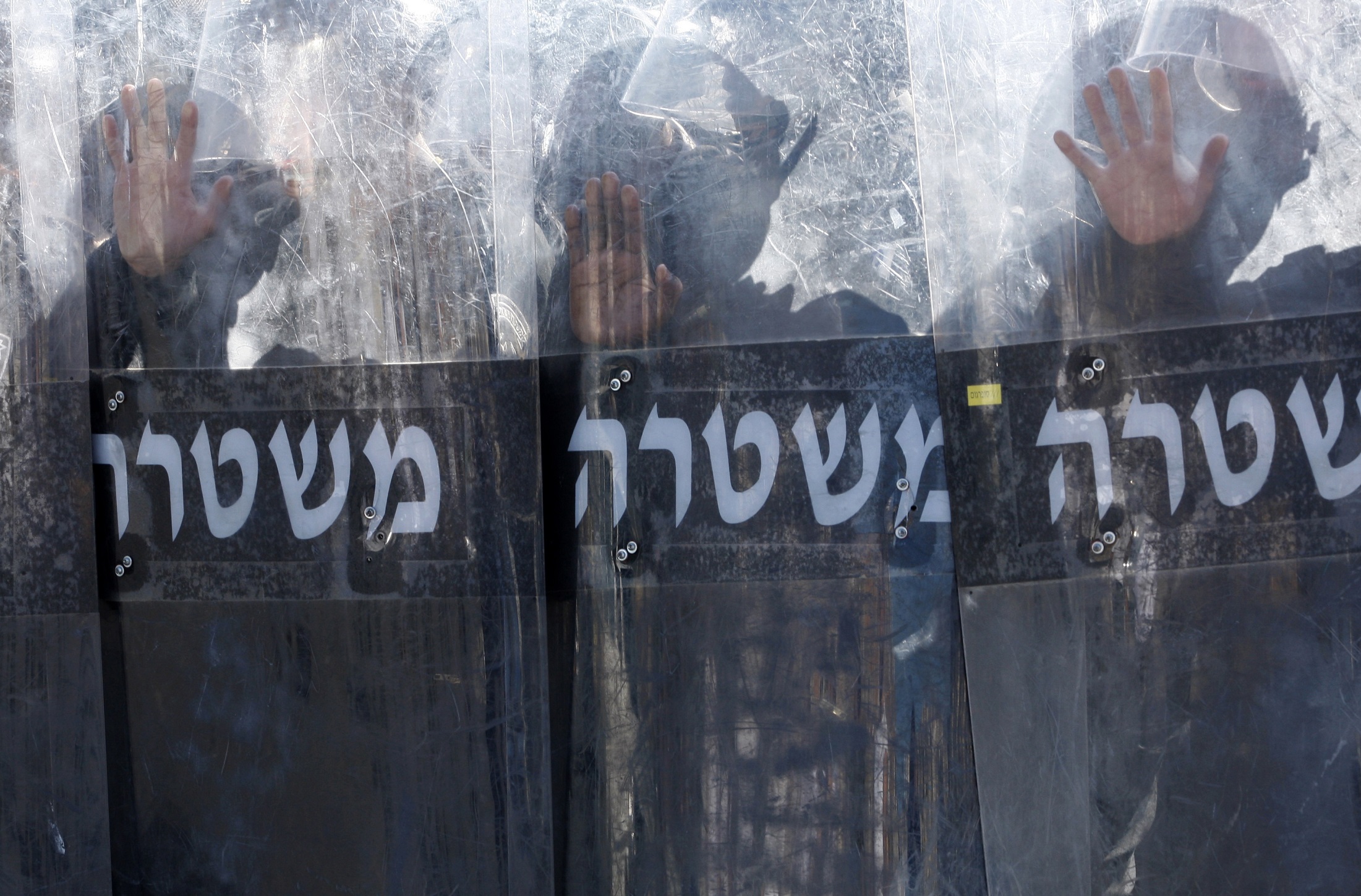Publications
INSS Insight No. 1615, July 5, 2022
A recent announcement noted the launch of the Israeli Guard, whose main purpose, at least in the initial phase, will be to provide the Border Police with much-needed reinforcement. Composed of police officers and army reservists, it will seek to optimize operational responses to large-scale domestic public disturbances, based on lessons learned from the May 2021 clashes between Arab and Jewish Israeli citizens. Reinforcement of the Border Police is imperative, and should be enhanced by human resources and advanced technologies tailored to the internal security tasks. The importance and urgency stem from the anticipated need to mobilize combat Border Police units, which are trained to respond to threats of extreme disorder and terrorism in the West Bank and East Jerusalem and to deal simultaneously with violent confrontations between radical opposing groups inside Israel. The term “National Guard,” generally used worldwide for gendarmeries, does not properly apply to the new Israeli initiative, which falls short of addressing Israel’s vital need to build an integrated national system capable of dealing with the entire range of anticipated disruptions and disasters in the civilian sector.
On June 21, 2022, Israel’s Prime Minister, Minister for Internal Security, and Police Commissioner announced the launch of the Israeli Guard or “National Guard,” to operate as part of the Border Police – an arm of Israel’s national police force. The background to this decision was the experience of May 2021, which saw extensive violent clashes between Israeli Arabs and Jews, mainly in cities of mixed Jewish and Arab populations and on main roads in the Bedouin-inhabited areas of the Negev. These events – and the media reverberations around them – contributed significantly to a growing sense of insecurity and lack of control in Israel’s civilian space, and consequently to the search for improved enforceable response capacity to manage severe cases of public disorder. The main lesson of those clashes was the need to strengthen the security forces’ capacity to respond quickly and effectively to simultaneous outbreaks of extreme violence on several fronts, especially clashes between Arabs and Jews.
The National Guard’s organizational framework within the Border Police, which is designed to take shape over two years, will be based on:
- A strong command staff to coordinate the force buildup and its operations in the diverse fields of internal security.
- Another brigade to double the regular operational forces of the existing Border Police tactical brigade, which includes quick-response special forces companies prepared to carry out diverse missions to confront public disorder.
- Doubling of the Border Police’s reserve force with the addition of another brigade for emergency missions.
- Expansion of the existing Border Police volunteer force (“Matmid” – i.e., persistent) which now comprises 8,000 members, recruited and operating at the individual level (not through civil organizations). In routine times they operate within the territorial arenas of the Border Police. Some of the additional volunteers, graduates of IDF combat units, will be included in “spearhead companies” to be set up as rapid response forces. The use of volunteers in cases of extreme civil disruptions, including those involving Israeli Arab citizens, can be very challenging, requiring strict procedures and close professional supervision.

In tandem, two additional measures will enhance enforcement in cases of public disturbances:
- More volunteers in the regular (“blue") police, working in the framework of the Civilian Guard in existing police stations, in order to bolster the public’s sense of security in routine times. This action will supplement an increase in police personnel for tasks linked to dealing with crime and violence in Arab society.
- Based on the lessons of May 2021, the IDF is setting up 12 new companies of reservists for internal security tasks, operating within the framework of the Home Front Command, and another four reserve companies in the Northern and Southern Commands. Their chief mission will be to enforce security along the main routes in emergencies, to enable the IDF to move forces without interference.
The decision to strengthen the Border Police is correct and important, even without reference to last year’s disturbances. It is particularly justified because the Israel Police as a whole are not strong enough, quantitatively and qualitatively, to deal with the entire range of threats and the challenges presented by Israeli society in the current reality. Strengthening the Border Police, especially if in tandem with bolstering the regular police, is a primary Israeli interest, not only in terms of internal security, but also in order to enhance the governance, stability, and resilience required by Israeli society. This vital and urgent interest should be at the top of the national agenda, even at the expense of resources allocated to the security establishment, which is responsible for securing the country from external threats.
In concrete terms, the current decision to strengthen the Border Police has far-reaching significance in several areas: deterrence, effective response, improved governance, routine missions, and stronger preparedness for potential disasters. More specifically: 1) It will provide deterrence at the national level against elements prone to violent civil disturbances. 2) It will provide a heightened immediate professional response to various kinds of breaches of public order. 3) It will strengthen governance and enforcement in unstable arenas and bolster the public’s sense of security. 4) It will allow the blue police to focus on their traditional routine core tasks, which are regularly disrupted, and reinforce the police in recurrent public disturbances and emergency situations. 5) It should provide an available reserve for mass disasters requiring broad police involvement as part of police responsibility.
Increasing the size of the Border Police force must be accompanied by qualitative improvement. Since the Israeli Guard’s main mission will be associated with potential violent friction within Israel’s civilian space, including Arab society, it will require special sensitivity and the smart use of the renewed force. It will need to exercise restraint and focus on actual violators while avoiding harm to uninvolved civilian bystanders. Consequently, it is important to ensure qualitative improvements in the upgraded Border Police’s intelligence capacities and utilization of advanced technological means. It is also important to promote in-depth processes of screening and professional improvements in personnel selection and training, including through hands-on assistance for combatants in their work among civilians in sensitive circumstances. At present, most Border Police activity takes place in the West Bank and East Jerusalem, dealing with severe disruptions and potential terrorist attacks. On the other hand, in the civilian sphere in Israel they will be called to perform tasks of a completely different nature, requiring flexibility, caution, and delicate judgement, especially in rapidly changing missions, particularly when civilians are engaged in public violence.
All these issues are now facing the Border Police command, which must build the force wisely to make it effective in its diverse areas of operation. Only then can the Border Police meet the high expectations accompanying the present move.

All this is necessary, but not sufficient. The focus on strengthening the Border Police so as to improve its enforcement capacity inside Israel hardly warrants calling it a “National Guard.” An important opportunity has been missed to create a new and broad conceptual framework as a precondition for establishing a national system, capable of carrying out the entire gamut of potential hazards in Israel, whether natural or manmade. Israel possesses a highly professional and robust system to deal with its many external security threats, but it lacks a sufficient parallel system to handle the range of threats to its internal security. These threats demand a robust response as well. Presenting the important move of strengthening the Border Police as an adequate response to diverse internal disruptions is inflated and unjustified.
The current move of upgrading the Border Police can and must serve as the first phase of a full strategic process of setting up a system resembling the National Guard in the United States or the gendarmerie in other countries. The goal should be to provide an adequate national response capacity to all relevant hazards in the civilian Israeli arena. The process must integrate the efforts of all organs engaged in the entire spectrum of possible national emergencies and to provide the necessary preparedness prior to the potential disruption, ensuring risk management during and after the occurrence, including rehabilitation and recovery. A comprehensive and essential move of this kind should include the following:
- Formulating an agreed, multifaceted, and integrated national concept for the management of mass disasters and disruptions, whether natural or manmade, including military confrontations in the civilian arena, civil riots, severe earthquakes, tsunamis, and other disasters.
- Enshrining in law the national and professional responsibility and authority for the balanced and optimal management of the future national system for disaster management and its components, whether at the government level, among local authorities, or in civil society, including the necessary links between civilian, police, and military organs.
- Ensuring optimal coordination, cooperation, and close collaboration among all sectors involved at all stages of disaster management, based on a strong professional national authority, with legally defined powers and the ability to activate and supervise all the secondary professional entities.
- Reinforcing existing mechanisms, first and foremost the Israel Police, to ensure they can successfully handle a range of emergency scenarios, based on an orderly long-range work plan, with proper budgeting and supervision.
- Defining frameworks for relying on IDF resources in extreme cases as the main source of assistance to the existing systems.
This essential and unavoidable future framework will give full and suitable expression to the content behind the term “National Guard,” as the tasks currently assigned to it should be only the first phase for the entire necessary process.



